TABLE OF CONTENTS
Do tincture get you high? It’s one of the most commonly asked questions about this cannabis-infused product. The answer, however, isn’t so straightforward. There are many different types of cannabis tinctures, each with a unique set of ingredients, flavorings, and cannabinoid concentrations that determine the extent of its effects. Does tincture get you high, let's find out!
What Is A Cannabis Tincture? Do Tinctures Get You High?
First, let’s take a look at the product itself. Cannabis tinctures are alcohol or oil-based marijuana extracts, but most dispensaries sell oil-based tinctures due to regulations against blending alcohol and cannabis such as in cannabis-infused alcoholic beverages.
Medicinal preparations of marijuana became widely available in American pharmacies in the 1850s until cannabis became illegal. Modern, oil-based tinctures are available for medicinal and recreational use and offer users an alternative to smoking or vaping marijuana.
Cannabis tinctures can be derived from the marijuana or hemp plant. Both varieties belong to the same plant species. The only difference is that marijuana is traditionally bred to produce THC-rich buds, while hemp produces CBD-rich flower and should legally contain less than 0.3 percent THC.
Weed tinctures are cannabis concentrates, usually made with high-proof ethanol to dissolve the flower or trim’s trichomes. Vegetable glycerin-based tinctures do not contain ethanol. Both tinctures come in a dropper bottle for accurate dosing.
For some, alcohol-based tinctures can be too harsh for sublingual (under the tongue) absorption. If this weed tincture recipe burns your tongue, try a vegetable glycerin tincture recipe or add the alcohol-based tincture into a drink.
Weed tinctures are discreet since they produce no smoke or odor and are easy to carry in a purse or bag. The dropper bottle enables you to get a precise dose time after time. Best of all, sublingual absorption can produce quick-acting and long-lasting effects.
Cannabis tinctures are usually alcohol-based cannabis extracts. High-proof alcohol is used as a solvent to dissolve the plant’s active ingredients and in the final product. Alcohol-based marijuana tinctures can contain between 60-70% alcohol.
Since alcohol-based tinctures can taste bitter, vegetable glycerin, sweeteners, and flavoring may be added to improve the flavor. Commercial tincture producers may add other natural ingredients like vitamins, supplements, and herbal extracts. It’s a versatile product that can be added into food or drinks or taken on its own by applying drops under the tongue.
THC tinctures offer users many benefits, including:
- Low calories
- Long-lasting effects
- Long shelf life
- Multiple delivery methods
- Fast-acting effects with sublingual absorption
THC tincture’s high alcohol content (60-70%) gives it a long shelf life (3-5 years) but has a bitter flavor. In order to offset the harsh taste, manufacturers may use additional ingredients to give the herbal tincture a better flavor.
A glycerin THC tincture features a vegetable glycerin base and no alcohol. Alcohol and glycerin tinctures are found in dropper bottles, making them easy to dose and drop under the tongue for fast absorption.
Tincture is usually administered in a dropper so that it can be easily measured and dosed appropriately. For novice users it is recommended that you start with about 1mL and go from there. Slowly increase the dose especially if you feel the effects onset quickly. It is important to build up slowly until you get to a comfortable dosage that you like.
For users who are weight watching, tincture is a perfect substitute to high sugar edibles such as gummies or brownies. The alcohol has a low calorie count and the tincture actually has an enjoyable flavor especially in high concentrated products. You can even incorporate the tincture into your regular meals or use it to spice up an interesting dish. It is also recommended for use when making gelatin or salad dressing. I am sure with all the creative minds out there some pretty great dishes could come into being.
Fortunately unlike other concentrate preparations, tincture is safe and easy. All you will need is a strainer, alcohol, a grinder and the best part, your cannabis products. The steps are simple and can be completed and maintained easily over the process. The culmination of the process is a
Benefits Of Using Cannabis Tinctures
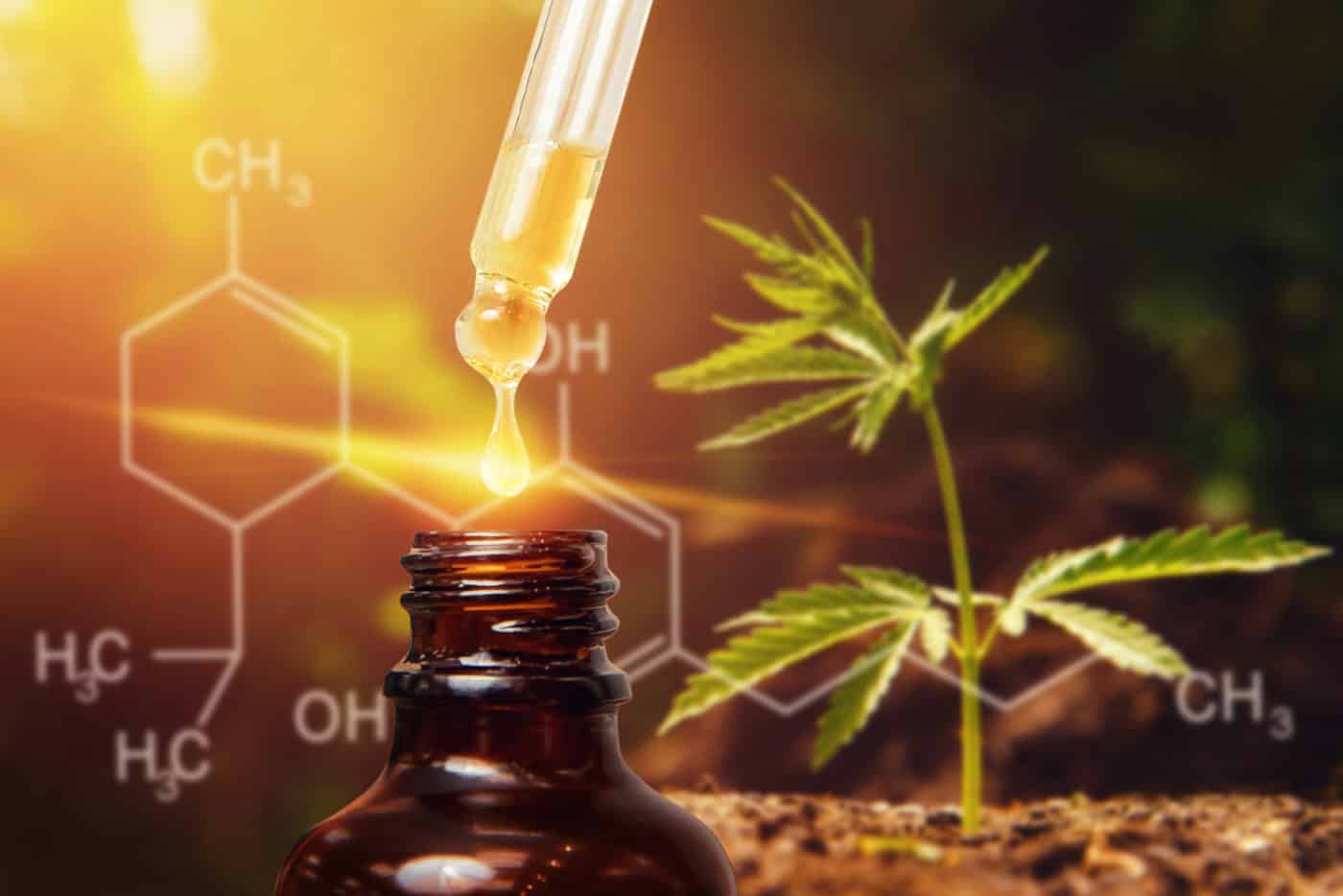
Regardless of what type of cannabis tinctures you try, there are numerous benefits of using cannabis tinctures. Cannabis tinctures are discreet. There’s none of the smoke or vapor associated with inhalation methods.
You also eliminate the smell associated with lighting up, which is a dead giveaway. Cannabis tinctures can come in discreet packaging that makes them look like any other wellness product.
In addition, cannabis tinctures are a low-calorie alternative to traditional edibles such as baked goods and candy. The calories per serving vary by brand and product. Usually, each serving is between 5 to 10 calories. Whether you are watching your weight or simply don't want to feel full, tinctures are the ideal option.
Tinctures can last for months or years, depending on the frequency of use and storage practices. If kept in a cool, dry, and dark space, tinctures can have a long shelf life without losing too much potency. Some users store their tinctures in a refrigerator or freezer to slow down the natural degradation process.
Best of all, you can use tinctures in many ways. Add it into any food or beverage. Smoothies, juices, cocktails, and other foods are fair game. The possibilities are endless. Or, you can take it alone. Simply ingest your desired dose or add it under your tongue for faster absorption. It’s all up to you!
Cannabis tinctures are also easy to dose. They usually come with a dropper so you can easily dose and consume them as needed throughout the day. Tinctures also provide you with a quick onset of effects compared to other delivery methods. Sublingual dosing can take effect within minutes while ingestion takes up to an hour to take effect. If you’re looking for a high or a non-intoxicating experience, cannabis tinctures are the way to go.
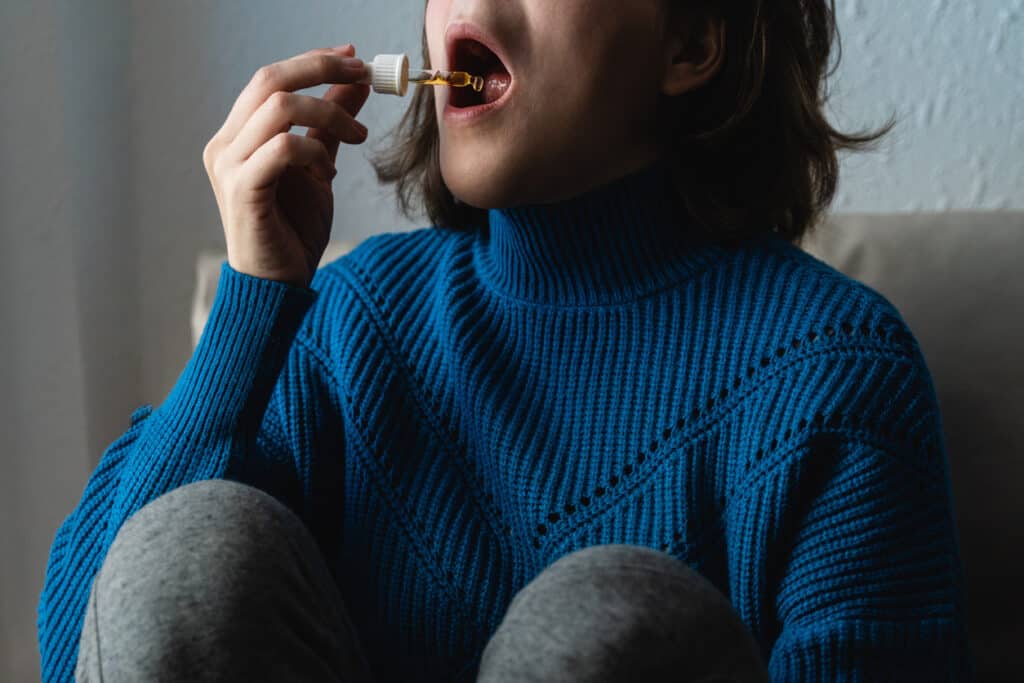
Do THC Tinctures Get You High?
Cannabis-derived THC tinctures can definitely get you high. THC and CBD are the two most common cannabinoids available. THC, however, is responsible for producing hallucinogenic and euphoric effects.
The more THC you consume, the higher you’ll feel. However, higher THC doses can increase the risk of its side effects including dizziness, anxiety, and paranoia. THC tinctures can contain anywhere from 300mg to 1000mg per bottle.
It’s important to make a distinction between THC and its acid/non-activated form: THCA. THCA can be found in the raw cannabis plant, but decarboxylation methods such as heating weed in the oven at a certain temperature can convert the acid-based precursors into the active THC compound.
THCA tinctures are non-intoxicating and have potent anti-inflammatory, analgesic, neuroprotective, and anti-emetic properties.
Does CBD Tincture Get You High?
Hemp-derived CBD tincture does not get you high. At least, it shouldn’t. If it does, you may have a mislabeled product on your hands. For this reason, you should always purchase tinctures from a brand that performs third-party analytical testing for potency and purity.
CBD produces a clear-headed and relaxing experience without the intoxication of THC. CBD tinctures can also contain a wide range of cannabinoid concentrations ranging from 300mg to 1,000mg of CBD per bottle.
Does CBN Tincture Get You High?
Cannabinol (CBN) is a minor cannabinoid known for its relaxing and sedative effects. It is known to have a mildly intoxicating effect. Over time, the THC in cannabis flower converts to CBN as a result of a number of aging factors including light, heat, and air.
Many users take CBN as a sleep aid to reduce insomnia and manage other sleep disorders. CBN has also shown to fight pain and inflammation while regulating the immune system. CBN can be found in both THC and CBD tinctures in varying ratios.
Does CBC Tincture Get You High?
Cannabichromene (CBC) is a strong, non-intoxicating cannabinoid, which won’t make you feel high by itself. However, when taken with other cannabinoids, CBC can improve their effects. CBC has been shown to provide relief for cancer, pain, information, depression, neurological diseases, and acne.
Does CBG Tincture Get You High?
Cannabigerol (CBG), known as the mother of all cannabinoids, is a non-intoxicating cannabinoid found in cannabis and hemp plants. CBG oil has been shown to reduce the side effects of THC including anxiety and paranoia. CBG is also believed to aid in pain, inflammation, nausea, and cancer. Research indicates CBG can reduce intraocular eye pressure from glaucoma.
Does THCV Tincture Get You High?
Tetrahydrocannabivarin (THCV) is a non-intoxicating cannabinoid with great potential. Found mainly in sativa strains, THCV is known for its energizing, focused, and motivating effects. Many users take advantage of its invigorating effects during the day or afternoon. In tinctures, THCV can add a relaxing and blissful feeling.
Research into THCV shows that this cannabinoid can relieve stress, anxiety, and panic attacks. Its calming and euphoric effects are ideal in the treatment of mental health disorders including post-traumatic stress disorder PTSD.
In addition, THCV has neuroprotective qualities that can aid in the treatment of Alzheimer's disease, multiple sclerosis, and Parkinson's disease. THCV has also been shown to suppress a user's appetite.
Does THCA Tincture Get You High?
Tetrahydrocannabinolic acid (THCA) is a non-intoxicating cannabinoid found in raw cannabis. When decarboxylated (such as through heating methods), THCA converts to the intoxicating THC compound. In tinctures, THCA can amplify many of the health benefits of other cannabinoids.
THCA is known to relieve inflammation, pain, seizures, and more. Research shows that THCA can improve neurological disorders such as Alzheimer’s disease and Parkinson’s disease. in addition, THCA is believed to help stimulate a person's appetite, which could be helpful for cases of anorexia and cachexia. Finally, THCA has displayed cancer-fighting characteristics.
Does Delta 8 THC Tincture Get You High?
Delta 8 THC is a mildly intoxicating cannabinoid. In tinctures, this cannabinoid can create a balanced effect with other cannabinoids or offer a lower intensity experience when taken alone. Delta 8 THC has been shown to aid in the treatment of pain, inflammation, anxiety, nausea, and appetite loss.
Does 1:1 Tincture Get You High?
Here’s where it gets tricky. Some cannabis-derived tinctures (and other marijuana-infused products) contain a range of CBD and THC cannabinoid ratios. One of the most common ratios is 1:1 tinctures delivering a balance of cannabinoids. If you consume 1:1 marijuana tinctures, you are more likely to get high than using CBD-rich tinctures alone.
Instead of feeling supremely high as you would with a THC-only tincture, a 1:1 tincture can help you relax, slow down your stressful thoughts, and give you a slight buzz, depending on how much you take at a time. CBD is thought to balance the side effects of THC such as paranoia and anxiety. Overall, the 1:1 tincture creates a balanced and pleasant high with minimal side effects.
Tincture Ratios
Your ideal cannabinoid ratio depends on your marijuana tolerance. For new users, a low-THC ratio can provide an entry-level experience without the heavy narcotic effects. Any CBD:THC ratios greater than 10:1 are helpful for users who don’t want to experience a debilitating high. 2:1 or even 3:1 CBD:THC ratios also offer a balanced experience with a slight high.
Common Cannabinoid Ratios
- 2:1 – Relatively balance effect for individuals who can handle moderate doses of THC
- 4:1 – High CBD for individuals who have mild tolerance for THC
- 8:1 – High CBD for first-time users or those who don’t want to experience intoxicating effects
What Effect Do Terpenes Have?
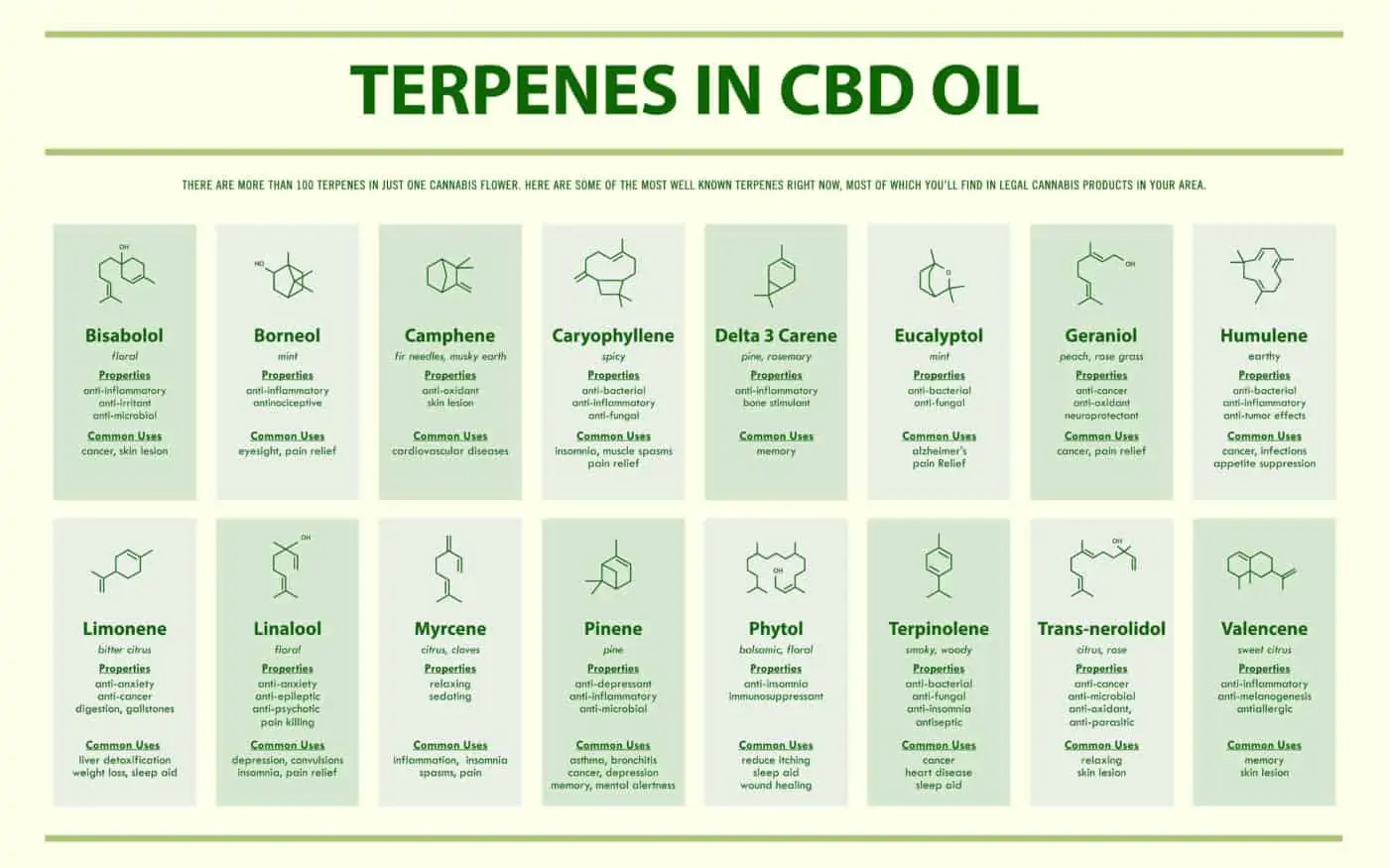
When shopping for cannabis tinctures, consider the types of terpenes (aromatic oils) included in the formulation. Are they synthetically derived? Are they derived from cannabis? What other botanical sources are they derived from? Having a complete profile of terpenes in your tincture can work to enhance the effects of every cannabinoid.
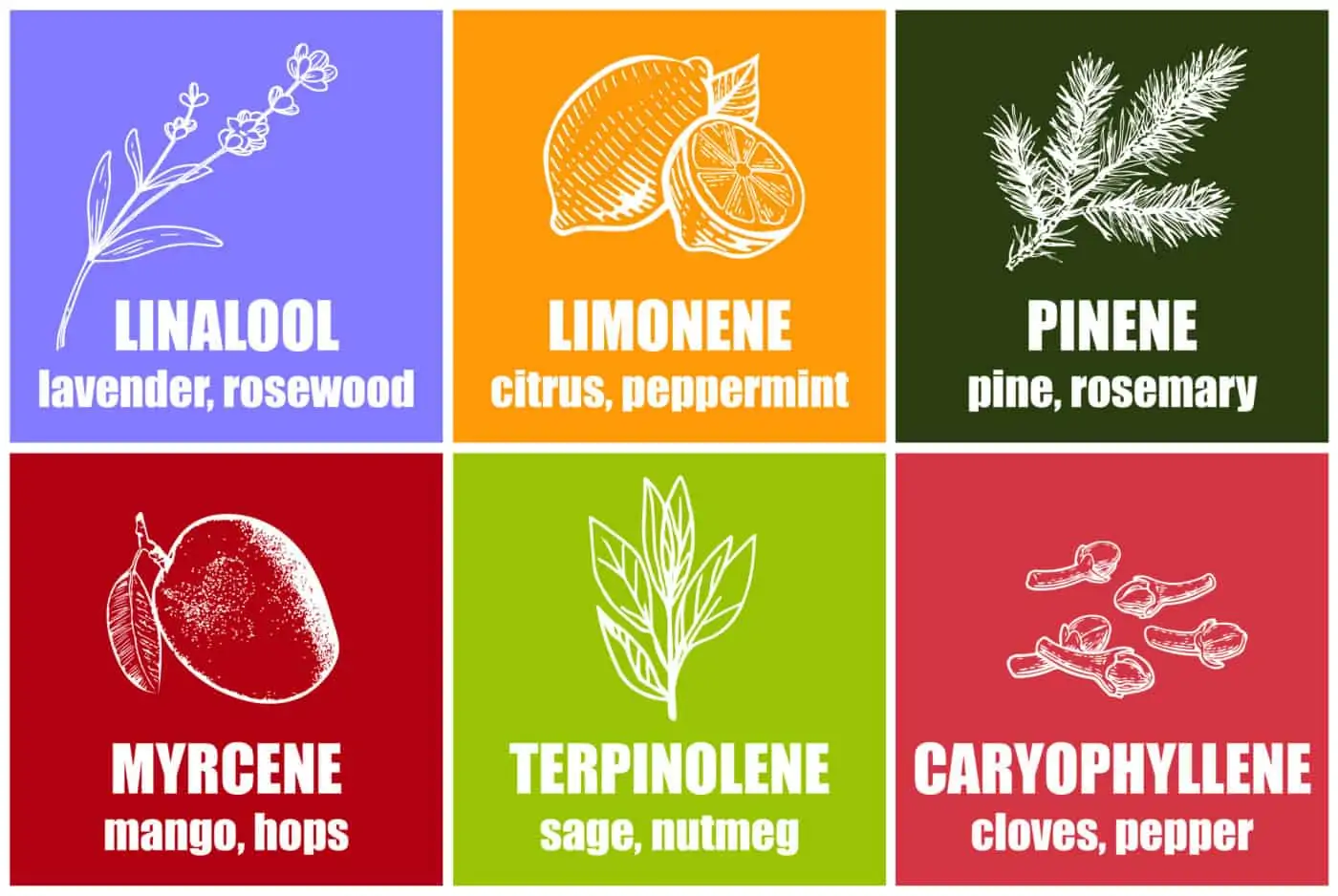
How To Consume Cannabis Tincture
Once you’ve picked your ideal cannabis tincture, the way you consume it can also determine if and when you get high. If you’re new to CBD tinctures, start off by dosing one milliliter under your tongue. Sublingual delivery is fast-acting due to its quick introduction into the blood vessels and the brain. If one mL isn’t enough, try two mL the next day and so on until you’ve reached the ideal dosage level and high.
If sublingual delivery isn’t your preferred method of consumption, you can also infuse your meals and drinks with your CBD or THC tincture. Ingesting tincture-based edibles isn’t as fast-acting as sublingual delivery because they must go through your digestive system. It can take about an hour to feel anything compared to about a 20-minute onset with sublingual tincture consumption.
When you consume your tincture sublingually, its effects can last longer than if you’d smoke or vaporize cannabis. Tinctures’ effects, including their high, can last for up to four hours. When ingested, tinctures’ (or any other edibles’) effects can last longer than most other consumption methods. Edibles' effects can last from six to eight hours.
Cannabis tincture is a remedy that has been around for a long time but has recently seen a boom in popularity. It was first developed as the main form of medical cannabis use in the United States and is now used medicinally in this day-and-age. The tincture is basically cannabis infused extract made with alcohol. The THC is extracted from the cannabis product by the alcohol. Tinctures are a great way to manage pain and are also great for experienced and novice marijuana users alike.
few weeks but you will be satisfied with the results.
What Do You Need to Make Cannabis Tinctures?
Making a cannabis tincture at home is super easy and affordable. Cannabis plant material and high-proof grain alcohol are the main ingredients.
Here is what you need to make a cannabis tincture:
- Cannabis flower
- Cannabis grinder
- Baking dish with see-through cover
- Oven thermometer
- Glass jar (opaque or clear)
- High-proof alcohol (190 proof grain alcohol; do not use isopropyl alcohol) – * Use 750 mL of high-proof alcohol for every ounce of cannabis flower used. Use less alcohol for a stronger tincture.
- Coffee filter
- Dropper bottle
- Funnel
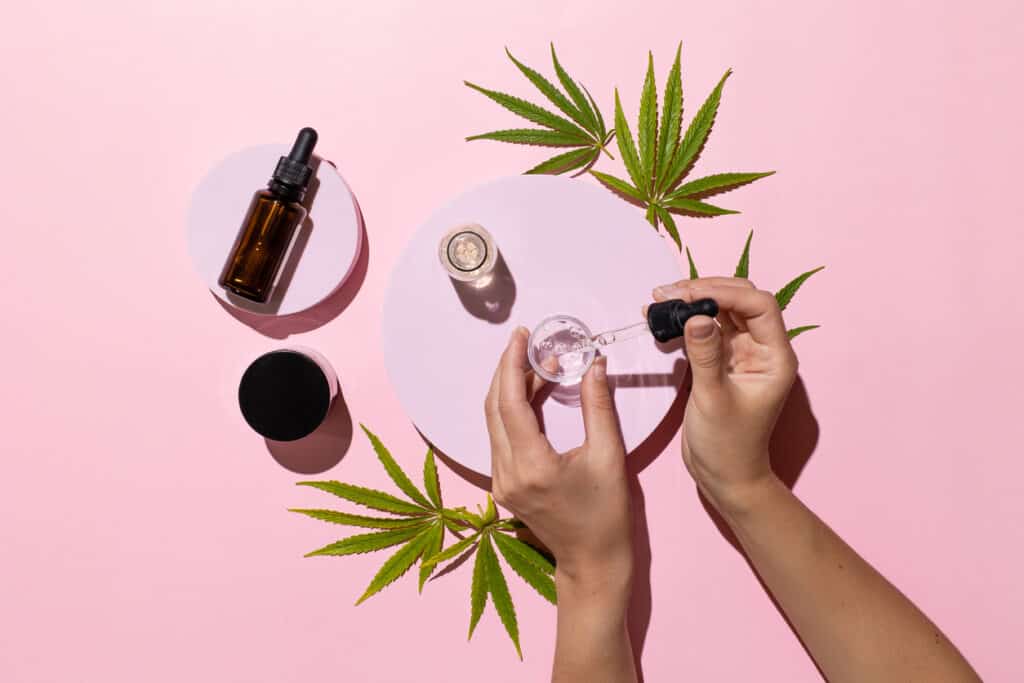
How to Make Cannabis Tincture
- Collect all the supplies and ingredients.
- Break the cannabis flower down into pea-sized pieces by hand, with a grinder, or with scissors.
- Decarboxylate the cannabis material (decarbing is not necessary if you plan to remove the high-proof alcohol via heating)
- Preheat the oven to 212º F.
- Put the ground cannabis in a baking dish with a see-through cover. Spread the cannabis evenly across the bottom of the dish.
- Put an oven thermometer on top of the cannabis and cover the dish with the cover.
- Place the baking dish in the oven. Check every few minutes and take note when the thermometer reaches 212º F.
- Once the oven reaches the desired temperature, leave the baking dish inside for one hour and 20 minutes. Ensure the thermometer reads 212º F throughout the baking process.
- After one hour and 20 minutes, turn off the oven and use an oven mitt to remove the dish from the oven.
- Let the dish cool for about 30 minutes before removing the cover.
- Put the decarbed cannabis in an airtight container.
- Add enough high-proof alcohol in the jar to completely submerge the cannabis.
- Let the jar sit for at least 24 hours and up to three months. Shaking the mixture every day can help dissolve more trichomes. The mixture may start to turn green or brown.
- Strain the mixture into a funnel lined with a coffee filter into an opaque dropper bottle. Note the production date. Store in a cool and dark space.
Interested in improving the flavor of the THC tincture? Explore a variety of delicious marijuana tincture recipes in our blog post.
How to Use THC Cannabis Tinctures
How do you consume cannabis tinctures? A dose of cannabis tincture is usually dropped under the tongue and held for about 60 seconds while it is absorbed by the mucous membranes. After 60 seconds, users can swallow the cannabis oil.
Cannabis tinctures can also be added to your favorite food or drink. Just add a few drops into your morning cup of coffee, lunch-time soup, or savory sauce during dinner. Anything goes!
As a first-time user, it is important to start with the lowest dose possible and gradually build up to your desired effects. We recommend starting off with 1 to 2 mg of cannabinoids under the tongue, about 4 times a day. When taken sublingually, effects should appear within minutes and last for a few hours.
Effects should appear within minutes due to the fast absorption method under the tongue. Keeping a journal can allow users to track responses to the dosage. After about 4 to 5 days, increase the dose by 2 to 3 milligrams and continue to increase every 4 or 5 days until the desired dose (maximum therapeutic benefits and no adverse effects) is reached.
How to Store Marijuana Tinctures
Store tinctures in an opaque and glass bottle. Avoid clear and plastic bottles. If clear bottles are all you have on hand, make sure to keep your bottle in a cool and dark place. Exposure to heat and light can break down cannabinoids in your tincture. In an optimal storage environment, alcohol-based tinctures can be stored for 3-5 years.
Interestingly enough, cannabis tinctures have been around for centuries, and were quite popular for medicinal purposes before the 1930’s US cannabis prohibition set in. These alcohol-based cannabis liquids are essentially, cannabis-infused alcohol.
Isn’t it hard to imagine that less than a century ago cannabis tinctures were listed in the U.S. Pharmacopeia? Now that medicinal and delicious marijuana tincture recipes are coming back into fashion (thank goodness!), we’ve decided to compile a few of the best on this list.
The Green Dragon Recipe – Slow Method
Although this recipe is quite easy to follow, it takes an advanced level of patience and time to see through. Aside from the required jar shaking every day, this type of extraction calls for a high-percentage, quality alcohol for best results.
The green dragon tincture is also ideal for making THC-infused candies, gummies and lollypops, since it makes it easy to incorporate small amounts with just the right potency. When ingesting, you can mix your green dragon tincture with something like honey for a sweet kick when placing it under the tongue.
To make the famous Green Dragon marijuana tincture, you will need;
- 30 g of cannabis (decarboxylated)
- Oven & Baking Pan
- 1 L of high-proof alcohol (Pure grain alcohol)
- Mason jar with a lid
- Grinder
- Glass dropper
- Coffee filters or cheesecloth
Directions:
- The first step entails grinding and decarboxylating your buds.
To do this, place your cannabis on a baking tray in the oven for 45 minutes. - Once that’s done, pour the alcohol into the jar along with the cannabis, close the lid tightly, and store it somewhere in a dark cabinet.
- For the next 2 weeks, be sure to shake the contents of the jar every day.
- After 2 weeks, remove any left-over crumbles from the tincture by using a coffee filter or cheesecloth, until there’s no plant material left.
- Pour the tincture in your glass jar and store it in the fridge.
Master Wu’s Green Dragon Recipe
This method is much like the previous, except that it’s actually an upgraded Green Dragon recipe, meaning it’s much faster. It takes about 20 minutes all-in-all.
For this one you’ll need:
- ⅛ ounce of cannabis flower.
- 2 ounces of high-proof alcohol
- An oven
- A baking pan
- Saucepan (Master Wu method)
- Jar(s)
Directions:
- The first step of this process is very similar to the original (previous) recipe. So, you finely grind your buds, decarb them, combine the cannabis and alcohol in a jar, and then close the lid. For the next part is where things are done differently…
- The second step involves cooking the cannabis and alcohol blend in a deep pot filled with water for 20 minutes. Be sure to keep the temperature at 170°C.
- For the final step, filter out the plant material from the mixture, pour it into smaller glass containers or droppers, and your cannabis tincture is ready for use!
Cannabis Tincture with Vodka or Brandy
These alcohol-based tinctures are much less potent than the green dragon, since they don't extract all of the cannabinoids. You also get to play around with different flavoured vodka in this case. Choose a brand to your liking.
For this delicious recipe you will need:
- 950 ml (1 qt) Vodka or Brandy
- 30 g of marijuana
- Mason jar with a lid
- Grinder
- Glass dropper
- Cheescloth/Coffee filters
Directions:
- The first few steps are similar to other recipes: Grind, decarboxylate, mix the marijuana with the alcohol in your mason jar, and be sure to close it tightly.
- This is where the method differs: Place the jar in a freezer for five days, while shaking the contents daily.
- If you’re concerned about the jar breaking from rigorous shaking, don’t. Alcohol takes much longer to freeze than water.
- Finally, strain your mixture through coffee filters or cheesecloths, and subsequently store it in a glass container at room temperature.
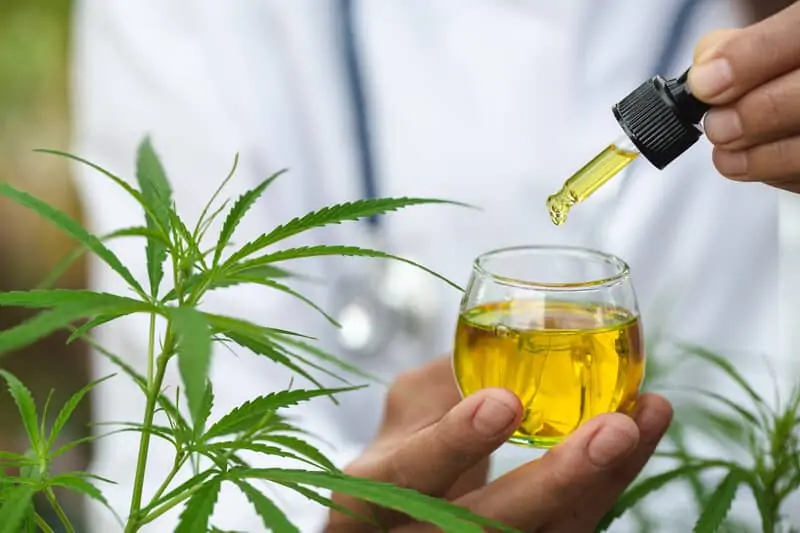
Cannabis Tincture with Honey Recipe
Two of nature’s greatest gifts – honey and cannabis – have long played a part in our development as a society, and have proven to be useful for both recreational purposes as well as medicinal. Together, they make a delicious and healing marijuana tincture.
Out of our selection of delicious marijuana tincture recipes, this one is a personal favourite. To make honey-infused marijuana tincture, you will need the following;
- Cheese cloth
- A slow cooker
- Honey
- Cannabis
Directions:
- Decarboxylate your cannabis
- Take your decarbed cannabis and wrap it in a thick cheesecloth. Fasten your cloth in such a manner that it keeps the cannabis inside. Try twisting or tying the ends, to make a large weed-teabag.
- Place your weed-teabag into your slow cooker. Depending on the desired potency and sweetness, you can add 500g to 2kg of honey.
- Place your temperature on low, otherwise it will boil and burn
- Let your honey and cannabis simmer for anywhere for 8 hours, while stirring occasionally.
- After the tincture is done cooking, let it cool. You can leave it overnight.
- After cooling, remove your teabag of decarbed cannabis, after squeezing the remaining honey back into your slow cooker.
- Pour your tincture into airtight jars
Cannabis Tincture with Coconut Oil
Although tinctures can be supplemented with a variety of oils, coconut oil has adequate fatty acids to perfectly bind with the cannabinoids – and gives a nice taste to it.
“
There are over 300,000 jobs in the cannabis industry. CTU trained me for one of them!

Makes $24.50 @ THC +
You’ll require:
- Saucepan
- Coffee filters or cheesecloth
- Mason jar
- Grinder
- One cup of coconut oil
- 5 g (0,12 oz) of cannabis
- Glass container
- Grinded cannabis
Directions:
- Pour the cannabis and coconut oil into a saucepan. On medium heat, let is simmer for 8 hours. Add water if necessary, to prevent burning.
- All done! Pour your coconut oil cannabis tincture into a container and into the fridge.
Making a weed tincture at home is simple and easy. Whether you use flower or concentrates, you can infuse the material in high-proof alcohol to create a potent. Here is the best weed tincture recipe using the freezer method.
Weed Tincture Ingredients and Equipment
- Large, freezer-proof glass mason jars with lids
- Cheesecloth or paper towel
- Freezer
- High-proof alcohol (190-proof grain alcohol recommended). Higher alcohol concentrations are more effective at dissolving the cannabis trichomes.
- Decarboxylated cannabis flower, trim, bubble hash, or kief. Decarboxylation is not required if you will be purging the alcohol with heat.
How Much Alcohol and Cannabis to Use
| Type of cannabis | Alcohol (per wash) | Concentrate (when purged) |
| 7 grams hash or kief | 1 cup (250 ml) | 3-5 grams |
| 1 oz flower | 2 cups (500 ml) | 3-5 grams |
| 2 oz leaves or trim | 1 quart (1 liter) | 3-5 grams |
| 4 oz hash or kief | 2 quarts (2 liters) | 60-65 grams |
| 1 lb flower | 1 gallon (4 liters) | 60-65 grams |
| 2 lbs leaves or trim | 2 gallons (8 liters) | 60-65 grams |
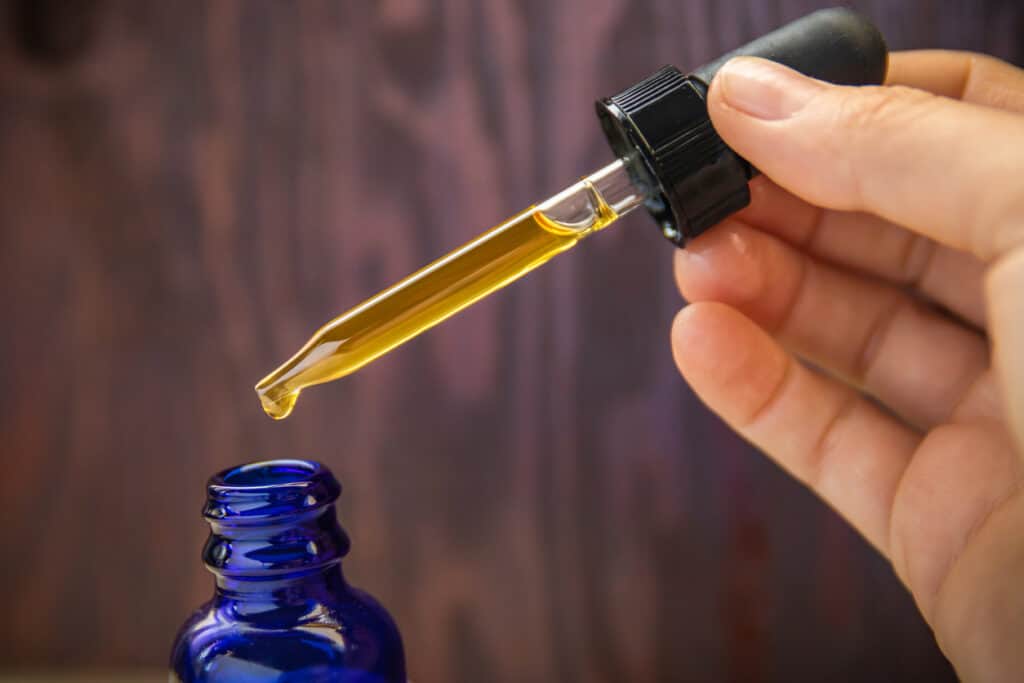
Best Weed Tincture Recipe: Freezer Method
- Collect the equipment and ingredients.
- Place the ethanol (for first and second wash) in a freezer-proof jar and put it in the freezer for 1 hour. Ethanol should reach 17º F (-8º C) or lower. Place the alcohol for each wash in a separate jar. The amount of alcohol used depends on the type and amount of cannabis used (refer to the chart above).
- If you are using cannabis flower, leaves, or trim, place the cannabis in a jar and freeze it at the same time as the ethanol jars.
- If you are using concentrates like kief and hash, mix it in a jar with a small amount of room-temperature alcohol until it dissolves. Break up large pieces of hash with a fork.
- When the alcohol reaches the right temperature, remove half of it (and the jar of cannabis, if using flower) from the freezer.
- Add the cold ethanol to the jar of cannabis or hash/kief mixture during the first wash (refer to the chart above). You can add more alcohol to submerge the cannabis completely.
- Cover the jar and shake it to remove the trichomes from the plant material. Place the jar in the freezer.
- Let the jar sit in the freezer for 30-60 minutes. Take it out and shake it every few minutes.
- After 1 hour, remove the jar from the freezer and open it.
- If you are using flower or trim, use the outer band of the jar lid to fasten four layers of cheesecloth to the top of the jars.
- If using hash or kief, use a paper towel to filter any tiny plant fibers. The liquid will flow out more slowly.
- Pour the strained liquid into a clean glass jar. Cover the jar and set it aside. So far, about 70-80% of the active ingredients have been extracted.
- Remove the cheesecloth or paper towel. Avoid wasting cannabinoids in the cheesecloth or paper towel by adding it into the jar with the second wash of alcohol.
- Add the second jar of alcohol to the wet cannabis (refer to the chart above). If necessary, add more alcohol to submerge the cannabis completely.
- Cover the jar. Shake it to remove the trichomes from the plant. Put the jar in the freezer.
- Keep the jars in the freezer for 30-60 minutes. Shake the jar every few minutes. The second wash extracts about 16-21% more cannabinoids for a total of 91-96% extracted.
- Strain the tincture and enjoy.
Become a Cannabis Cooking and Extraction Expert at CTU
Learn about our cannabis extraction training at Cannabis Training University’s online marijuana college. Our complete curriculums cover the essentials of growing cannabis, preparing it for cooking and extraction, and making various cannabis infusions, including edibles, tinctures, extracts, topicals, and more.
Whether you're totally new to cannabis or if you're looking for ways to cut down or quit smoking reefer all together, the choices can seem a little daunting, confusing and overwhelming.
But when it comes to cannabis tinctures, there's not another cannabis ingestion method that is more simple, easy and clear. Tinctures are quickly becoming a more popular alternative to smoking, and with these delicious marijuana tincture recipes you’ll be joining the cannabis tincture team in no time.
Learn much more about how to make cannabis extracts with online training from the leading marijuana school.
Learn to Make Cannabis Infusions at Cannabis Training University
There you have it! Quick, easy and safe even a novice user will be delighted in this process. Now you know how to make cannabis tincture of your own!
Interested in making cannabis edibles, cannabis topicals, and other cannabis infusions? Cannabis Training University provides students with a comprehensive curriculum covering the essentials of how to grow cannabis, how to harvest cannabis, and how to make a variety of cannabis infusions from scratch.
Start making your own THC tincture today!
Conclusion on Do Tincture Get You High?
So, do tincture get you high? Absolutely, if you consume the right one with enough THC. If, however, you don’t want to be bogged down with its hallucinogenic effects, opt for a CBD-rich tincture to experience similar therapeutic effects without the high. The best thing about cannabis tinctures: it’s easy to make your own tinctures. Learn how to make amazing cannabis tinctures at CTU online cannabis school!


Fred Hernandez
Fred Hernandez is a highly accomplished and versatile writer, boasting an extensive background in the cannabis industry. With an in-depth understanding of various sectors including cultivators, processors, retailers, and brands, Fred's expertise spans across the entire cannabis landscape. As a prominent contributor to CTU, he consistently delivers insightful articles exploring the latest developments, news, and regulations shaping the cannabis industry. Whether it's delving into the intricacies of cannabis products, cannabis strain reviews, or providing comprehensive analyses of cannabis laws, or sharing expert insights on cannabis cultivation techniques, Fred's wealth of knowledge positions him as an invaluable writer and educator for all cannabis-related subjects.


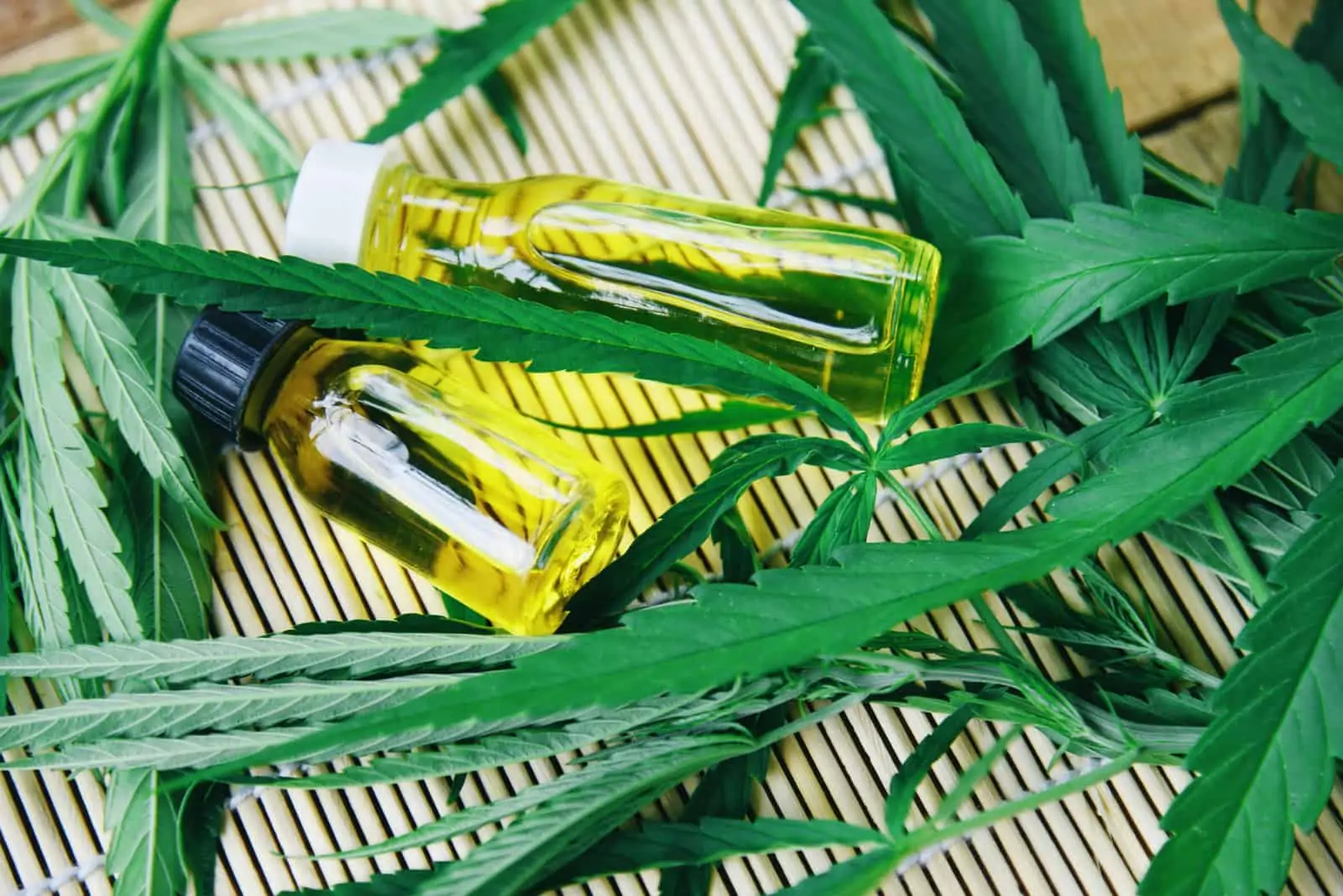



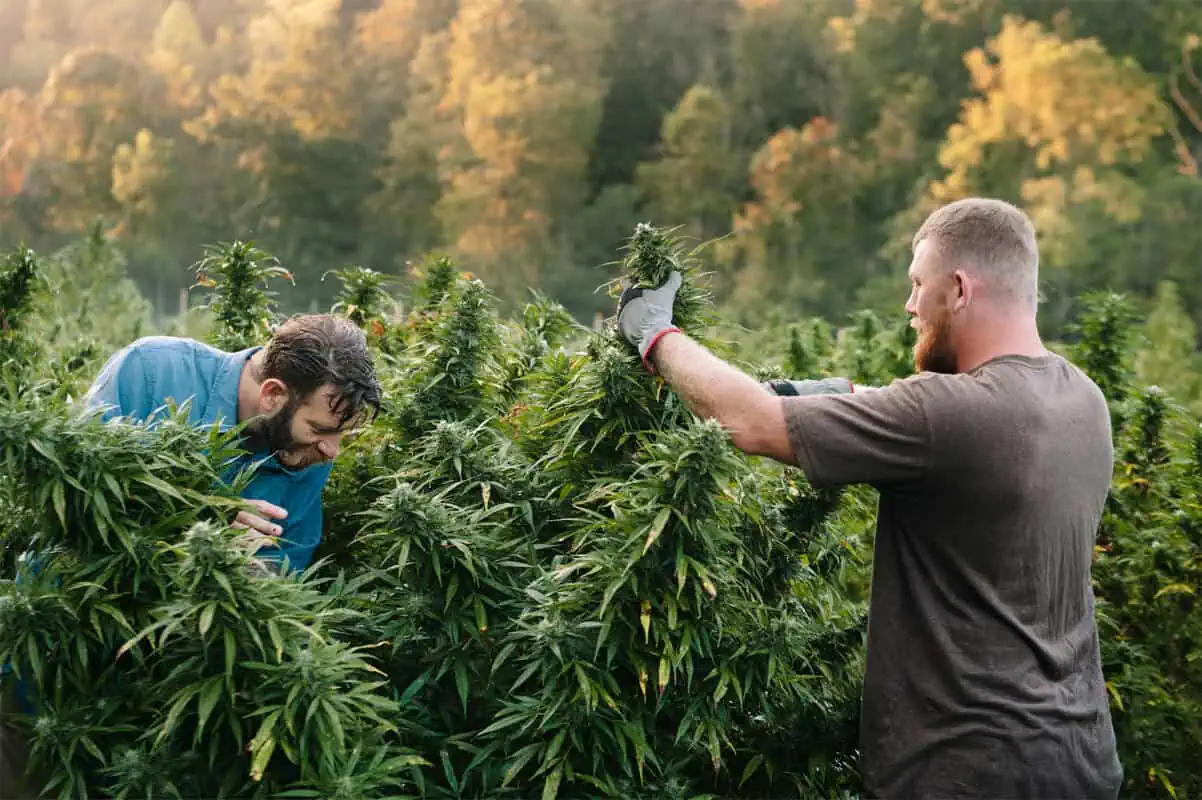
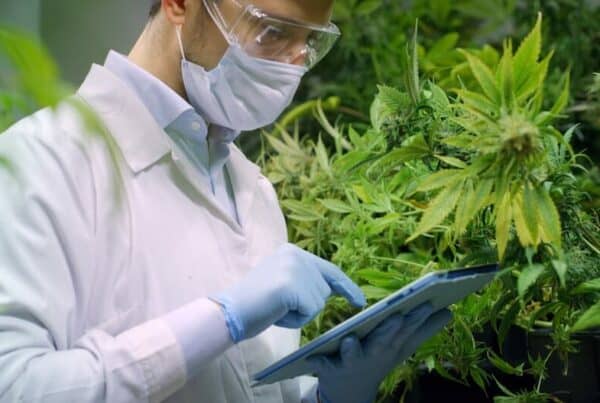
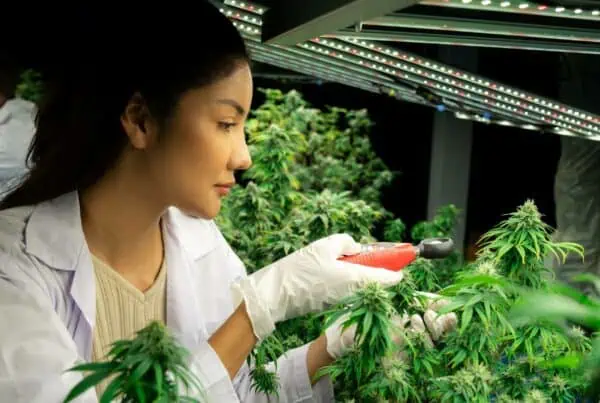
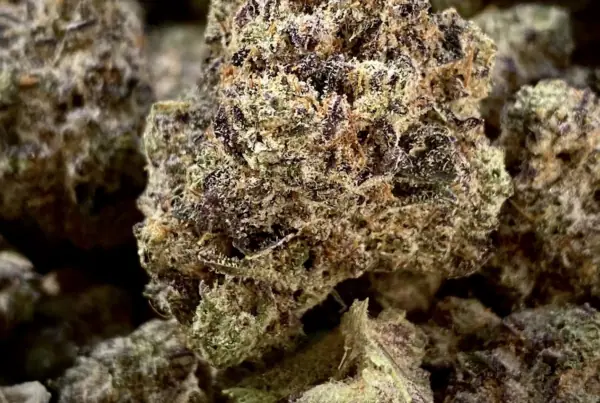
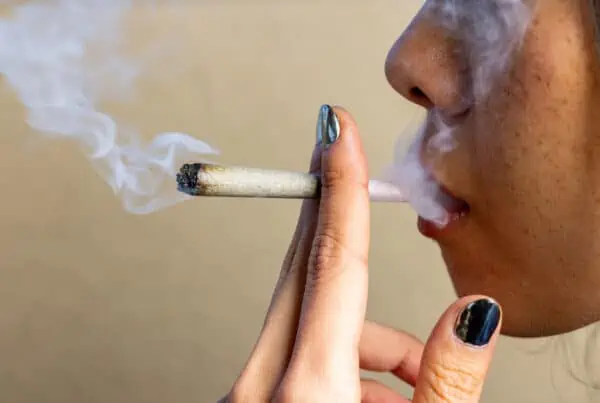

 Jeff was involved in an accident where he endured a traumatic brain injury. He had a week-long stay in ICU where brain surgeons
Jeff was involved in an accident where he endured a traumatic brain injury. He had a week-long stay in ICU where brain surgeons  100% risk free money back guarantee within 48 hours after purchase if student has not completed any of the courses or exams.
100% risk free money back guarantee within 48 hours after purchase if student has not completed any of the courses or exams.